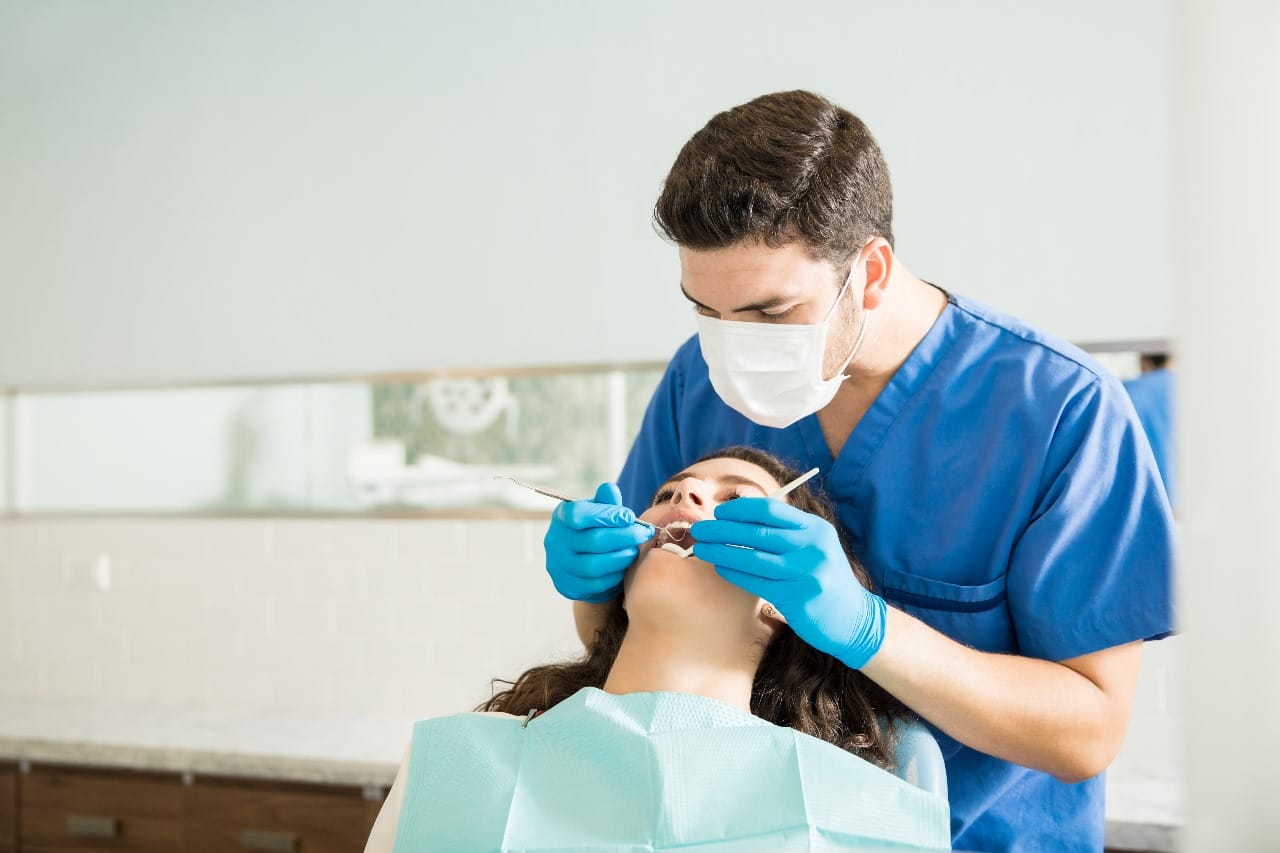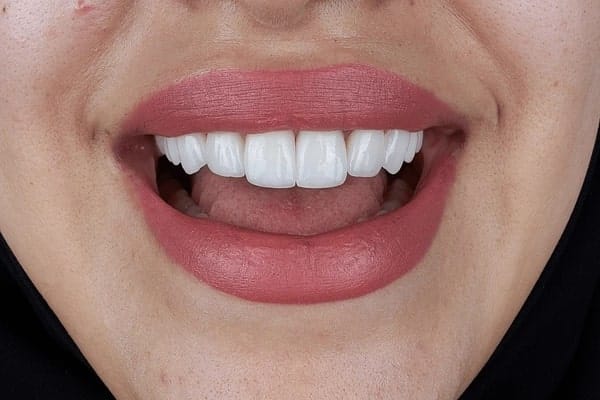When it comes to maintaining a healthy smile, professional dental hygiene appointments play a pivotal role. If you’ve booked an appointment with Dr Maddison Ng, you can expect a thorough, gentle, and patient-focused approach to your oral care. Whether you’re familiar with the process or it’s your first visit, understanding what happens during a dental hygiene appointment can help you feel more at ease.
What Is Professional Dental Hygiene?
Professional dental hygiene is an essential part of preventive dentistry, aimed at maintaining your oral health and preventing dental issues before they arise. It involves thorough cleaning and examination of your teeth and gums, conducted by an experienced dental hygienist like Dr Maddison Ng. The key goals of this procedure are to prevent cavities, gum disease, and other oral health issues, while also offering valuable advice on maintaining proper at-home oral hygiene.
What Are the Key Steps Involved in a Dental Hygiene Appointment?
A visit to Dr Maddison Ng practice typically follows a well-organised series of steps designed to ensure the best care for your teeth and gums. Here’s what you can expect:
- Initial Consultation and Medical History Review
Your appointment will start with a discussion of your medical history. This allows the dental hygienist to understand any pre-existing conditions, allergies, or other health concerns that may impact your treatment. It’s essential to be open and honest during this discussion so that the hygiene process is tailored to your needs.
- Teeth Cleaning (Scaling and Polishing)
The primary part of your appointment will involve a thorough cleaning of your teeth. The hygienist uses special tools to remove plaque and tartar that have built up over time. This process is known as scaling. Polishing follows, giving your teeth a smooth and shiny finish, while removing stains and surface debris.
- Plaque and Tartar Removal
Plaque is a sticky layer of bacteria that forms on your teeth, and when it hardens, it becomes tartar. Tartar can only be removed professionally. This process is vital in preventing gum disease and decay, both of which can have long-lasting effects on your oral health.
- Oral Health Education and Recommendations
After your cleaning, Dr Maddison Ng will provide tailored advice on maintaining good oral hygiene at home. This may include tips on proper brushing and flossing techniques, as well as advice on the types of toothbrushes and toothpastes that are most suitable for your needs.
- Fluoride Treatment
In many cases, a fluoride treatment is applied after your cleaning. This helps to strengthen the enamel of your teeth, making them more resistant to decay. Fluoride is a naturally occurring mineral that can be especially beneficial for those prone to cavities.
- X-rays (If Required)
X-rays may be taken to examine areas of your teeth and gums that are not visible during a routine exam. X-rays can help detect hidden issues like cavities between teeth, bone loss, or early signs of gum disease. Your hygienist will determine whether X-rays are necessary based on your individual needs.
- Final Recommendations for Home Care and Future Appointments
Once your treatment is complete, the hygienist will provide you with a clear plan for maintaining oral health at home. If any issues were detected during your appointment, follow-up treatments or further exams may be scheduled.
What Are the Benefits of Regular Professional Dental Hygiene Appointments?
Regular dental hygiene appointments are essential for several reasons:
Prevent Cavities and Gum Disease
One of the most significant benefits of professional cleaning is the prevention of cavities and gum disease. By removing plaque and tartar buildup, you significantly reduce the risk of tooth decay and gum inflammation.
Early Detection of Dental Issues
Professional dental exams allow for the early detection of potential issues such as cavities, gum disease, or even oral cancer. Early intervention helps to prevent more severe problems down the line.
Brighter Smile
Regular cleanings remove surface stains caused by coffee, tea, or other foods, leaving your teeth looking brighter and healthier. While it’s not a substitute for whitening treatments, professional cleaning certainly enhances the appearance of your smile.
Improved Gum Health
Gum disease can lead to severe issues, including tooth loss. By maintaining good oral hygiene and attending regular professional cleanings, you’ll keep your gums healthy, reducing the risk of gum disease.
How Often Should You Schedule Dental Hygiene Appointments?
For most people, visiting the
Dentist Palm Beach every six months for a professional cleaning is sufficient. However, some people, especially those with certain health conditions, may need more frequent visits. Dr Maddison Ng can help determine the best schedule for your individual needs, ensuring your oral health is maintained at its best.
How Can You Prepare for Your Dental Hygiene Appointment?
Preparation for your dental hygiene appointment is simple, but there are a few key things to keep in mind:
- Brush and Floss Thoroughly: Even though your dental hygienist will be cleaning your teeth, it’s important to brush and floss thoroughly beforehand. This helps to ensure the cleaning is as effective as possible.
- Update Your Health History: Make sure to inform your hygienist about any changes to your health, including medications or new medical conditions.
- Arrive with Questions: If you have any concerns about your oral health or hygiene habits, don’t hesitate to ask. A good dental hygienist will be happy to offer guidance.
What Types of Tools and Technology Are Used During Professional Cleanings?
During your appointment with Dr Maddison, you can expect the use of state-of-the-art dental tools and technology. Some of these include:
| Procedure |
Description |
Benefits |
| Teeth Scaling & Polishing |
Removal of plaque and tartar build-up from the teeth surface |
Prevents cavities, gum disease, and stains |
| Fluoride Treatment |
Application of fluoride to strengthen tooth enamel |
Helps prevent tooth decay and cavities |
| X-Rays (If Required) |
Dental imaging to examine areas not visible to the naked eye |
Detects hidden issues like cavities or infections |
How Can Dr Maddison Ng Help You Maintain a Healthy Smile?
Dr Maddison Ng professional approach to dental hygiene is all about personalised care. Through a combination of thorough cleaning, expert advice, and the use of cutting-edge technology, you can expect top-quality care designed to keep your teeth and gums in optimal health.
At
Palm Beach Dental, we are committed to offering you exceptional dental care, ensuring that your visit is a positive and valuable experience. Whether it’s your first visit or a routine check-up, we take the time to address your needs, provide gentle treatments, and educate you on the best practices for long-lasting oral health.
Read More:
Top Advice for Preventive Dental Care: How to Protect Your Teeth and Gums
References:
FAQs:
- How often should I visit the dentist for a professional cleaning?
It’s generally recommended to visit your dentist every six months for a professional cleaning, but those with specific oral health concerns may need more frequent visits.
- Does teeth scaling hurt?
Scaling should not cause significant discomfort. However, if you have sensitive teeth or gum disease, you may experience mild discomfort. Your hygienist will ensure you’re as comfortable as possible.
- What is the best way to maintain oral health at home?
Brush twice daily, floss regularly, and avoid sugary snacks. Also, use mouthwash and visit your dentist for routine check-ups and cleanings.
- Can fluoride treatment help prevent cavities?
Yes, fluoride helps to strengthen tooth enamel, making it more resistant to decay and cavities.
- What is plaque, and why is it important to remove it?
Plaque is a sticky layer of bacteria that forms on your teeth. If not removed, it can harden into tartar, leading to cavities and gum disease.
- Are X-rays necessary during every dental visit?
X-rays are only necessary when the dentist or hygienist suspects underlying issues that cannot be detected through a visual exam. Regular cleanings typically don’t require X-rays.



